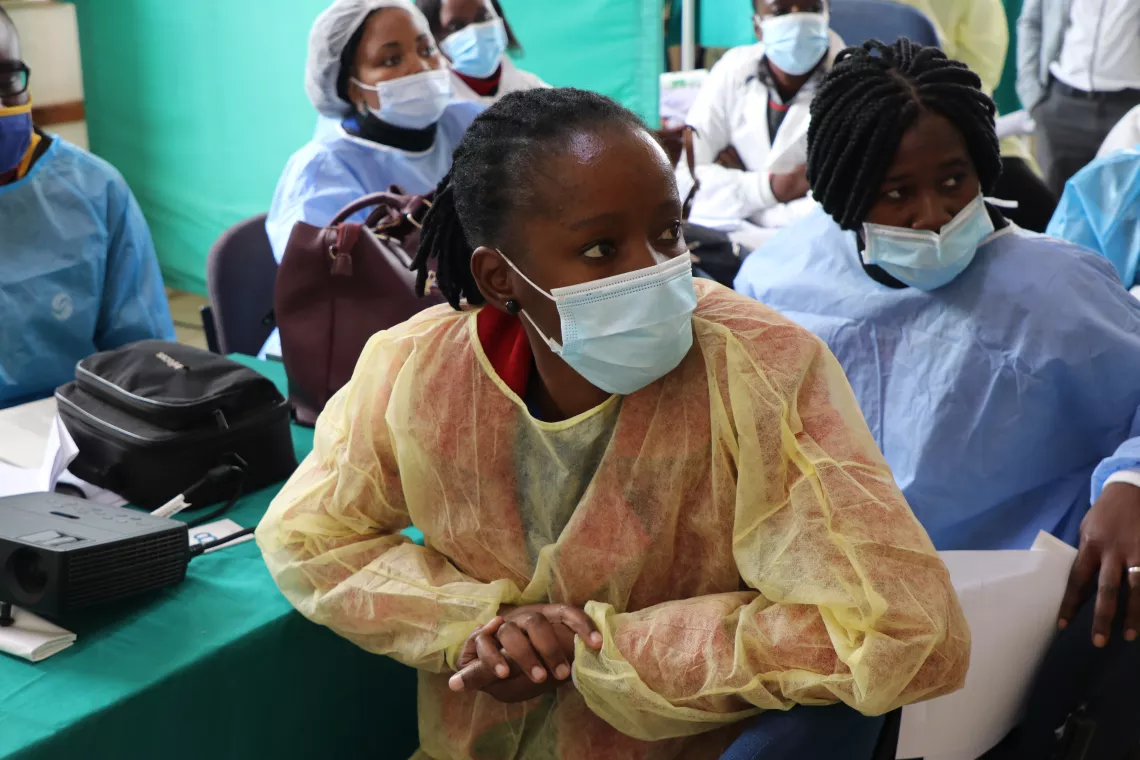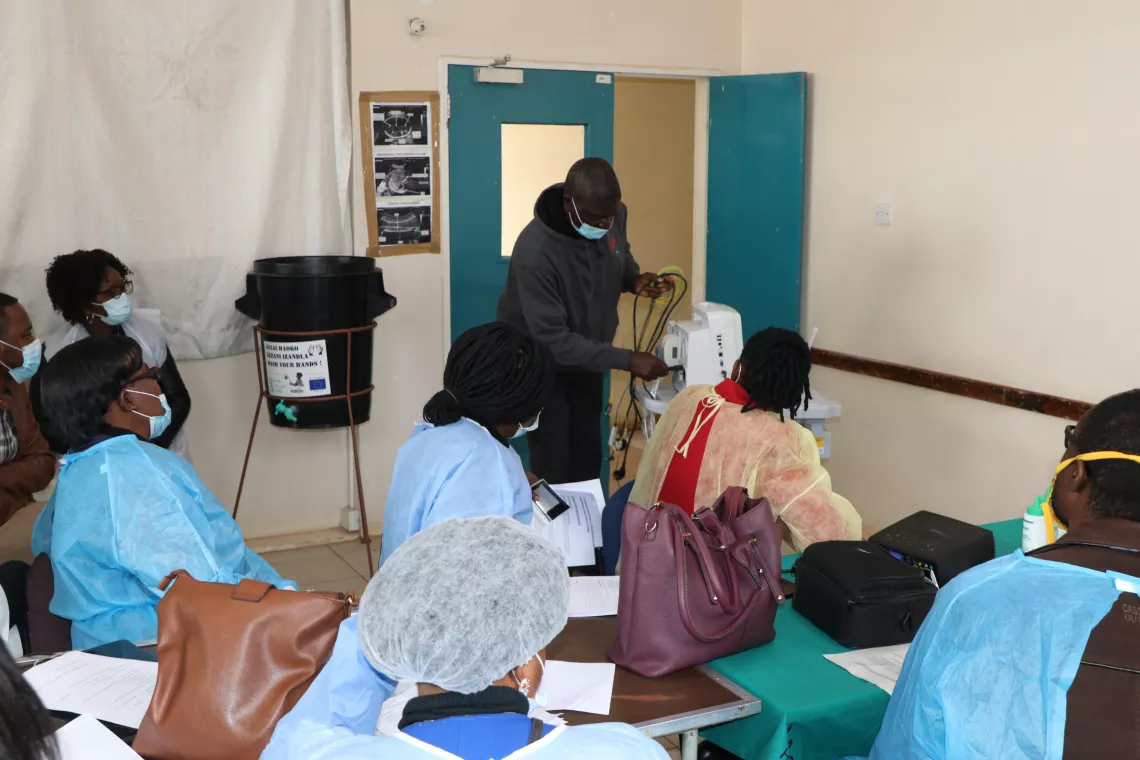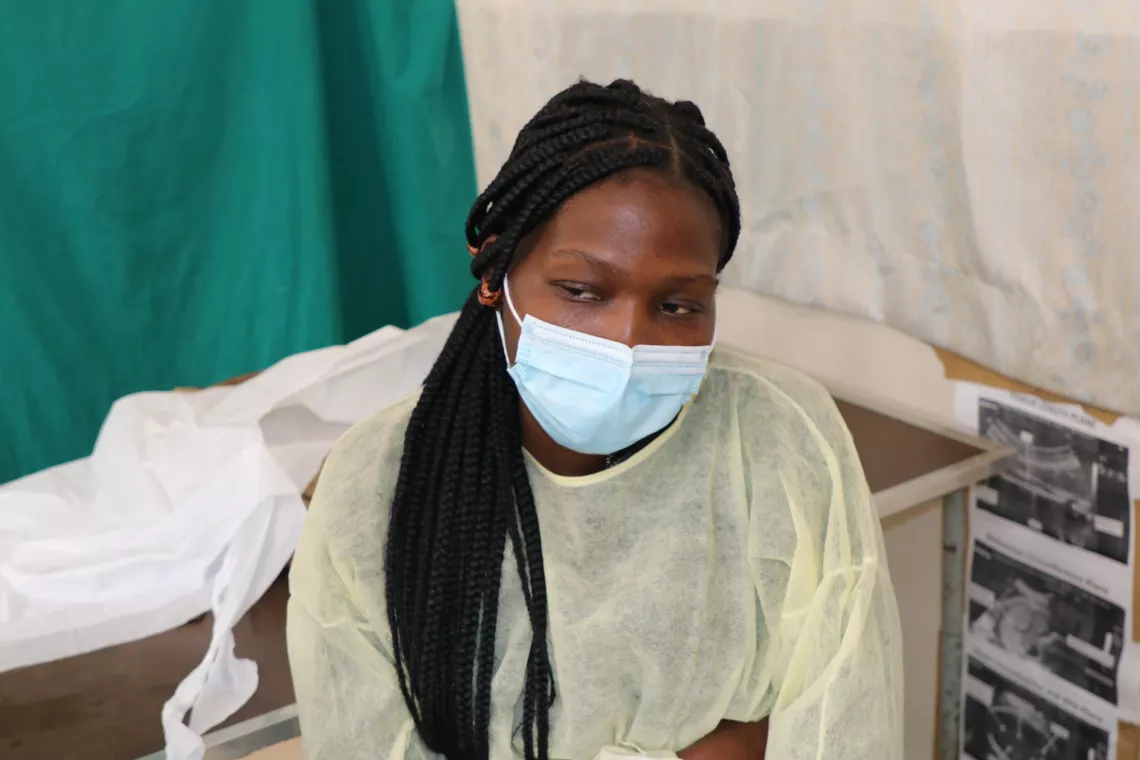Doctors and midwives praise Ultrasound Scan training to improve pregnancy outcomes
This new USS machine, which will replace an old and often malfunctioning one at my hospital will save lives of pregnant women and new-borns."

Harare, Zimbabwe - “This is lifesaving,” said Government Medical Officer, Dr Ruvimbo Musvosvi of Birchenough Bridge Hospital in Manicaland Province, pointing towards an Ultrasound Scan (USS) machine used for demonstrations to a group of midwives and doctors at a clinic in Harare in late June.
“This new USS machine, which will replace an old and often malfunctioning one at my hospital will save lives of pregnant women and new-borns through early detection of maternal and foetal complications,” she said.
Midwives and doctors from district and provincial hospitals converged at the clinic for training to use newly acquired USS machines. The 65 USS machines are being distributed to all district hospitals around the country. The machines are provided by UNICEF through the Health Development Fund (HDF).
Ruvimbo said this type of training is crucial to manage pregnant women who are underprivileged and cannot afford to pay for an ultrasound scan at a private hospital. “We see so many pregnant women with different complications and conditions and at times you just use your clinical understanding to come up with a diagnosis.”
She added that having a USS machine at the hospital was going to be beneficial to the community.
“The next referral medical centre is 125 kilometres away and most cannot afford to travel that far. Having a USS at the hospital means we can quickly pick up complications and we will be doing this free of charge,” she said.

In the past district hospitals had USS machines. Most machines no longer work and for the few that still work there are even fewer skilled health workers to operate them.
“This is a double package. We are being trained and receiving a machine for our respective health facilities. The economic environment can hinder the care we need to give pregnant women. The cost to have a scan can range from USD 10 to USD 50 and that is steep for many,” said Ruvimbo.


HDF supports health sector
The Health Development Fund is a multi-donor pooled funding mechanism established to strengthen health services and reduce maternal and child mortality. Managed by UNICEF, the HDF’s key donors include of the United Kingdom, Ireland, Sweden, the European Union and GAVI.
Mothers are important
Faith Bangawe, a midwife with the Chinhoyi Provincial Hospital is excited at the training opportunity. “Every pregnant woman should get an Ultra Sound Scan at least once during the eight visits that are recommended during pregnancy. This will help us reduce the maternal and neonatal mortality as complications are detected early. Mothers and children matter and we must protect them.”
Faith said at the provincial hospital they had one USS machine, which led to pregnant women being given staggered dates to come for examinations.
“Sometimes the machine will not be working and sometimes the numbers are overwhelming. The additional machine we are getting is vital in our work with our patients,” she said.
A consultant obstetrician and gynaecologist at Parirenyatwa hospital, Sydney Farai was monitoring and facilitating the training for the midwives and doctors.
“I am involved in the training of doctors and midwives from the provinces and districts so that they can be able to manage patients who are presented with complications. Instead of referring them to private or to central hospitals, now they can make an informed decision while they are at their local health care facility. We are grateful to UNICEF and the HDF for this intervention,” he said.

Ministry of Health supports the training under COVID-19 conditions
Esther Ngaru, a reproductive Health Officer in the Ministry of Health and Child Care said last year they were able to train larger cohorts of doctors and midwives, but this has had to reduce due to COVID-19.
“We used to have 18 or more for each session but because of COVID-19 we have had to reduce to 12 per class so that we could observe preventative measures like social distancing.”

The Ministry of Health and Child Care adopted the World Health Organisation’s Antenatal Care protocol, which recommends 8 contacts rather than the four visits previously recommended. In the context of COVID 19, there has been a reduction in the number of pregnant women booking for ANC. With the availability of USS machines, comprehensive ANC care can be provided encouraging more pregnant women to book and come for follow up ANC services. Increasing the number of contacts enables healthcare practitioners to detect complications and take appropriate action early.
“With these scans that were bought with financial support from the HDF we can achieve this. In addition to the 78 midwives and doctors that were trained last year we have trained a further 36 this year and 22 are still to be trained,” said Esther.




